Ask any successful c-store retailer what makes them different from the multiple down the road and most of them will reply without hesitation: customer service. For the elderly and those without transport that often means home deliveries.
When the arctic conditions gripped the UK over the winter local stores with home delivery services saw demand soar, and opened the eyes to many in the trade that a good van could provide more value to a c-store business than just the traditional run to the cash and carry.
Chris Grimes, who owns Blockley Village Shop in Gloucestershire, offers a delivery service to his elderly and infirm customers and it's been such a success he is thinking about investing in a van to expand the service. "We're considering getting a van to help us with this," he says. "During the heavy snow earlier this year, the amount of deliveries jumped as a lot of customers couldn't make it to the shop.
"We also have a sandwich order and delivery service to a local business park that has about 60 units, so a van would be great if there were some large orders."
However, a new set of wheels isn't cheap and with money tight retailers need to make sure they are spending wisely, getting a vehicle that's not only value for money but cheap to run.
Fuel is an obvious starting point, and here Gurch Samra may have the answer. The managing director of conversion company LPG-Cars says that drivers can save hundreds of pounds a year by switching to an alternative fuel system. "As well as the environmental benefits, the cost of liquefied petroleum gas (LPG) is cheaper than petrol and the wear and tear on the engine is reduced significantly, so maintenance costs will be cheaper as well," he says.
In some cases, LPG fuel is half the price of petrol or diesel, and now more than 1,200 UK forecourts are offering it. It works by combining propane with butane and ethane gases, resulting in up to 33% less emissions than petrol with little or no drop in quality.
There are new LPG vans on the market, but if you don't want to fork out for a new van, you can convert your existing vehicle to run on LPG. This costs about £1,500 and can take up to two days to complete.
LPG supplier LP Gas UK managing director Duncan Amos says that the cost of converting to LPG could be paid back within a year. "If a retailer uses their van regularly, either doing deliveries or collecting stock, then it makes financial sense to switch to an alternative fuel such as LPG," he says.
Amos adds that the number of forecourts offering LPG is constantly increasing so retailers needn't worry about running out. "Perceived lack of availability was a major factor against using LPG, but more forecourts are stocking it so they'll never be too far from an outlet," he says.
Samra says that LPG-run vans are also smoother rides compared with diesel vehicles. "Cold-starting is no problem and engine noise is reduced," he adds. "It's a great way to reduce carbon footprint without sacrificing performance."
Another money-saving solution could be to hire a van whenever you need it, rather than buy it outright. Simon Cook, sales director at hire company TLS, says that concerns over cash-flow are prompting retailers to investigate this option. "More than anything, c-store operators are worried about cash flow," he says. "They know that it is poor cash flow that kills most companies during tough economic times. What flexible rental allows them to do is have the van they need without the commitment of buying or leasing."
Cook points out that another benefit of hiring a van only when you need it is that the day-to-day running is handled by the rental agency itself. "For example, some agencies provide roadside assistance as part of the package. Having these issues taken care of by the rental company means that the customer can concentrate on their core business."
So if it's your driving ambition to offer a delivery service or simply to keep your van on the road for the lowest possible cost, there are plenty of destinations to steer to.
When the arctic conditions gripped the UK over the winter local stores with home delivery services saw demand soar, and opened the eyes to many in the trade that a good van could provide more value to a c-store business than just the traditional run to the cash and carry.
Chris Grimes, who owns Blockley Village Shop in Gloucestershire, offers a delivery service to his elderly and infirm customers and it's been such a success he is thinking about investing in a van to expand the service. "We're considering getting a van to help us with this," he says. "During the heavy snow earlier this year, the amount of deliveries jumped as a lot of customers couldn't make it to the shop.
"We also have a sandwich order and delivery service to a local business park that has about 60 units, so a van would be great if there were some large orders."
However, a new set of wheels isn't cheap and with money tight retailers need to make sure they are spending wisely, getting a vehicle that's not only value for money but cheap to run.
Fuel is an obvious starting point, and here Gurch Samra may have the answer. The managing director of conversion company LPG-Cars says that drivers can save hundreds of pounds a year by switching to an alternative fuel system. "As well as the environmental benefits, the cost of liquefied petroleum gas (LPG) is cheaper than petrol and the wear and tear on the engine is reduced significantly, so maintenance costs will be cheaper as well," he says.
In some cases, LPG fuel is half the price of petrol or diesel, and now more than 1,200 UK forecourts are offering it. It works by combining propane with butane and ethane gases, resulting in up to 33% less emissions than petrol with little or no drop in quality.
There are new LPG vans on the market, but if you don't want to fork out for a new van, you can convert your existing vehicle to run on LPG. This costs about £1,500 and can take up to two days to complete.
LPG supplier LP Gas UK managing director Duncan Amos says that the cost of converting to LPG could be paid back within a year. "If a retailer uses their van regularly, either doing deliveries or collecting stock, then it makes financial sense to switch to an alternative fuel such as LPG," he says.
Amos adds that the number of forecourts offering LPG is constantly increasing so retailers needn't worry about running out. "Perceived lack of availability was a major factor against using LPG, but more forecourts are stocking it so they'll never be too far from an outlet," he says.
Samra says that LPG-run vans are also smoother rides compared with diesel vehicles. "Cold-starting is no problem and engine noise is reduced," he adds. "It's a great way to reduce carbon footprint without sacrificing performance."
Another money-saving solution could be to hire a van whenever you need it, rather than buy it outright. Simon Cook, sales director at hire company TLS, says that concerns over cash-flow are prompting retailers to investigate this option. "More than anything, c-store operators are worried about cash flow," he says. "They know that it is poor cash flow that kills most companies during tough economic times. What flexible rental allows them to do is have the van they need without the commitment of buying or leasing."
Cook points out that another benefit of hiring a van only when you need it is that the day-to-day running is handled by the rental agency itself. "For example, some agencies provide roadside assistance as part of the package. Having these issues taken care of by the rental company means that the customer can concentrate on their core business."
So if it's your driving ambition to offer a delivery service or simply to keep your van on the road for the lowest possible cost, there are plenty of destinations to steer to.
Fiat Doblo Cargo
The Doblo Cargo boasts a 95hp, 1.4ltr engine and has a 'Start-Stop' function that reduces fuel consumption when the van stops at traffic lights. This model, priced at £13,000, also has 3.2 cubic metres of storage space, offering retailers further savings by reducing the number of journeys necessary.
The Doblo Cargo boasts a 95hp, 1.4ltr engine and has a 'Start-Stop' function that reduces fuel consumption when the van stops at traffic lights. This model, priced at £13,000, also has 3.2 cubic metres of storage space, offering retailers further savings by reducing the number of journeys necessary.
Renaut Master
With a 2.3ltr and 100hp engine, the Renault Master range offers plenty of power to the driver. It's also better for the environment than previous Master models, consuming 1ltr per 100km less than its predecessors, taking the sting out of the £24,300 price-tag for the buyer.
With a 2.3ltr and 100hp engine, the Renault Master range offers plenty of power to the driver. It's also better for the environment than previous Master models, consuming 1ltr per 100km less than its predecessors, taking the sting out of the £24,300 price-tag for the buyer.





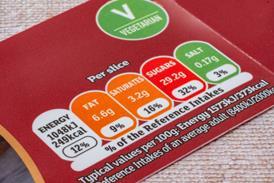
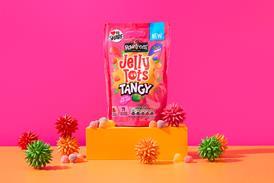









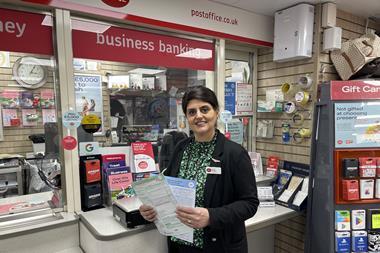
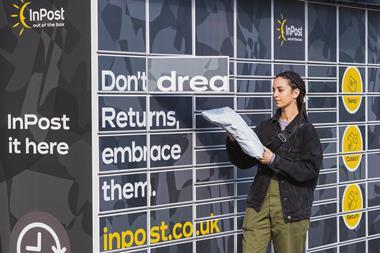
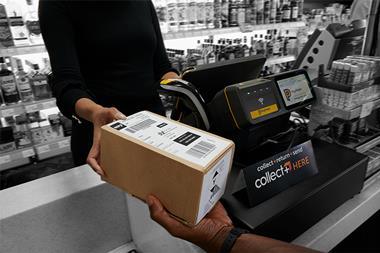
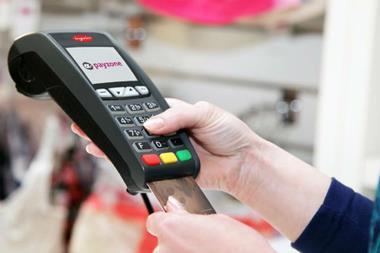
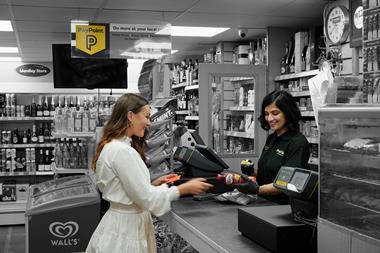


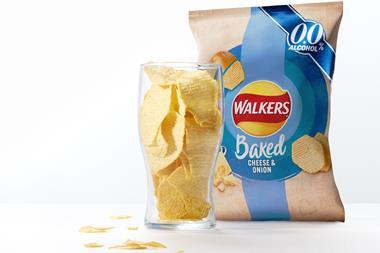
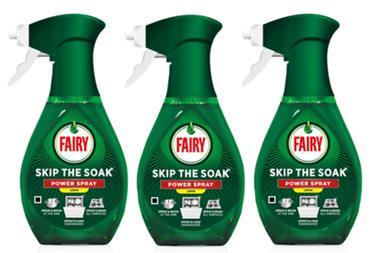
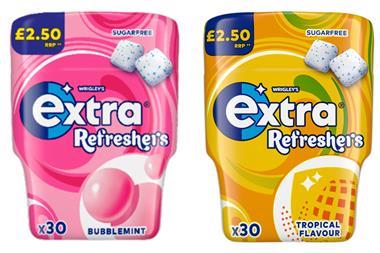

No comments yet